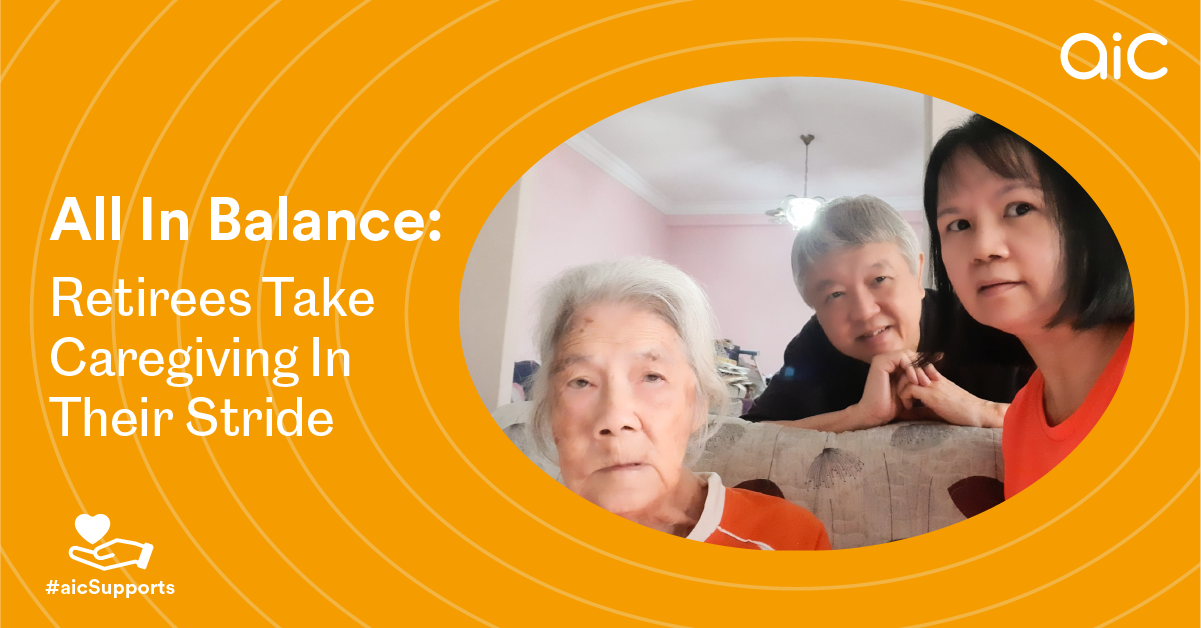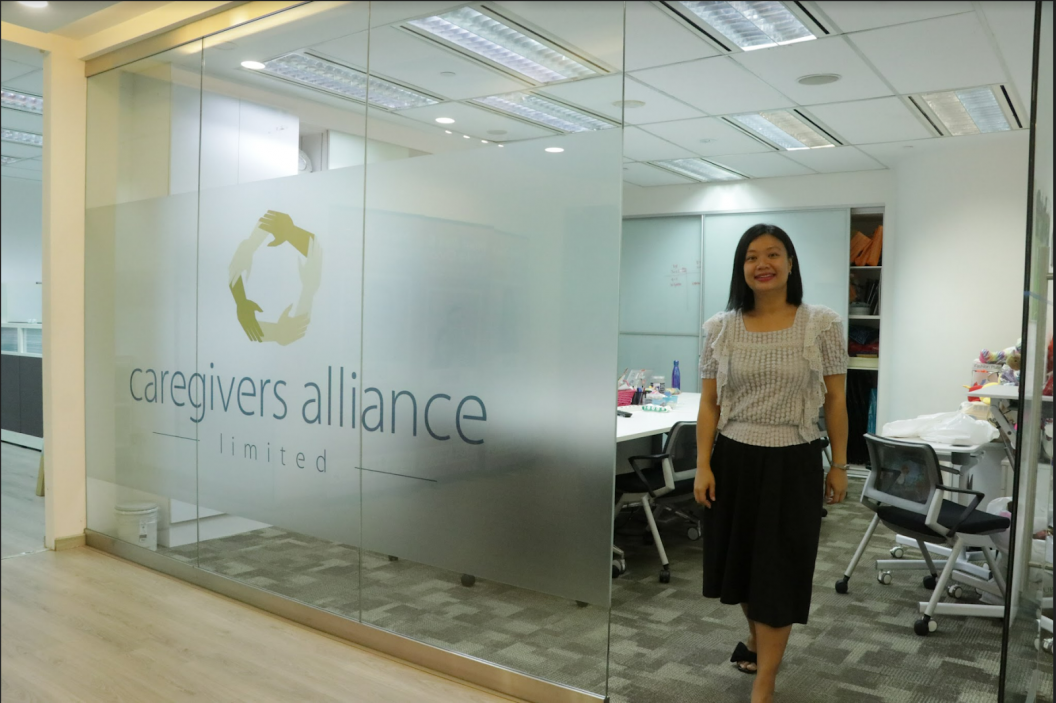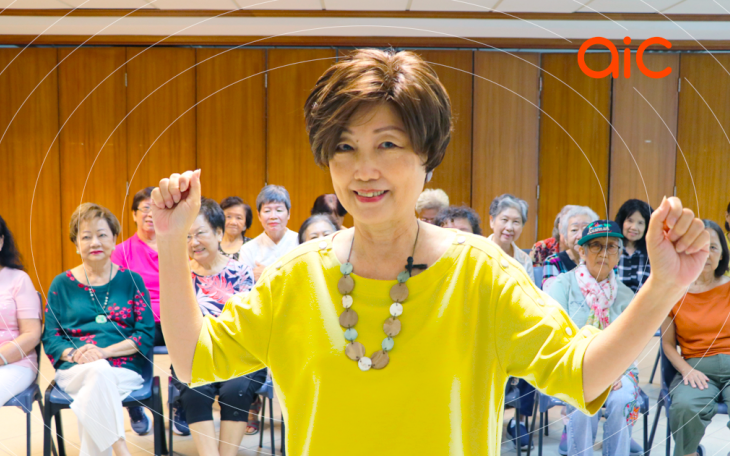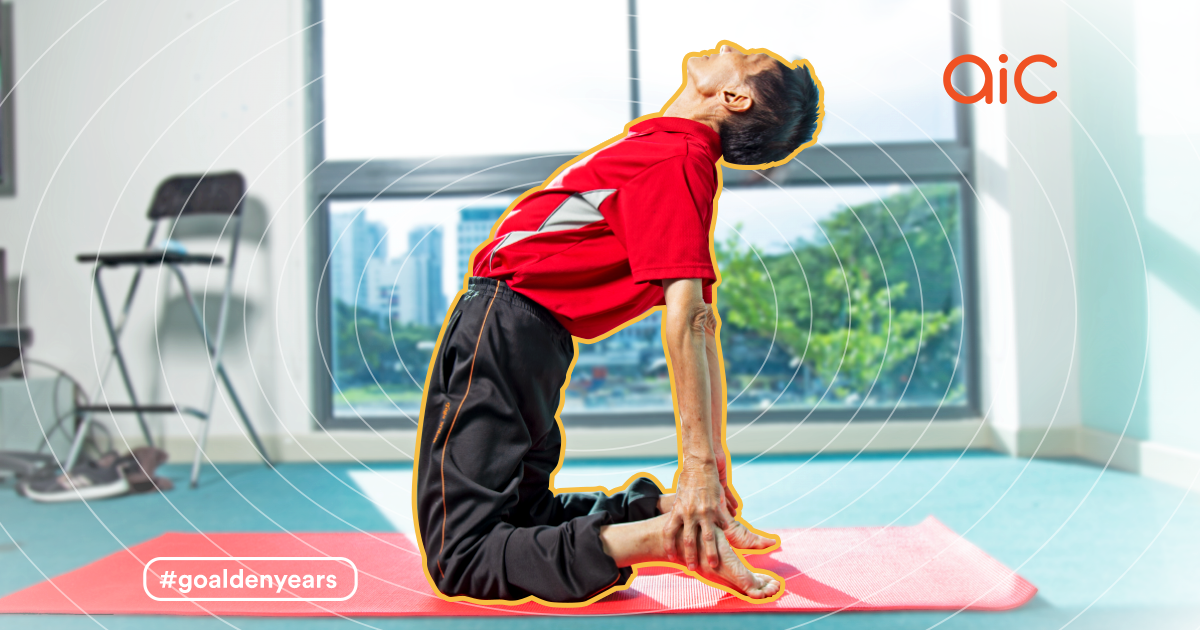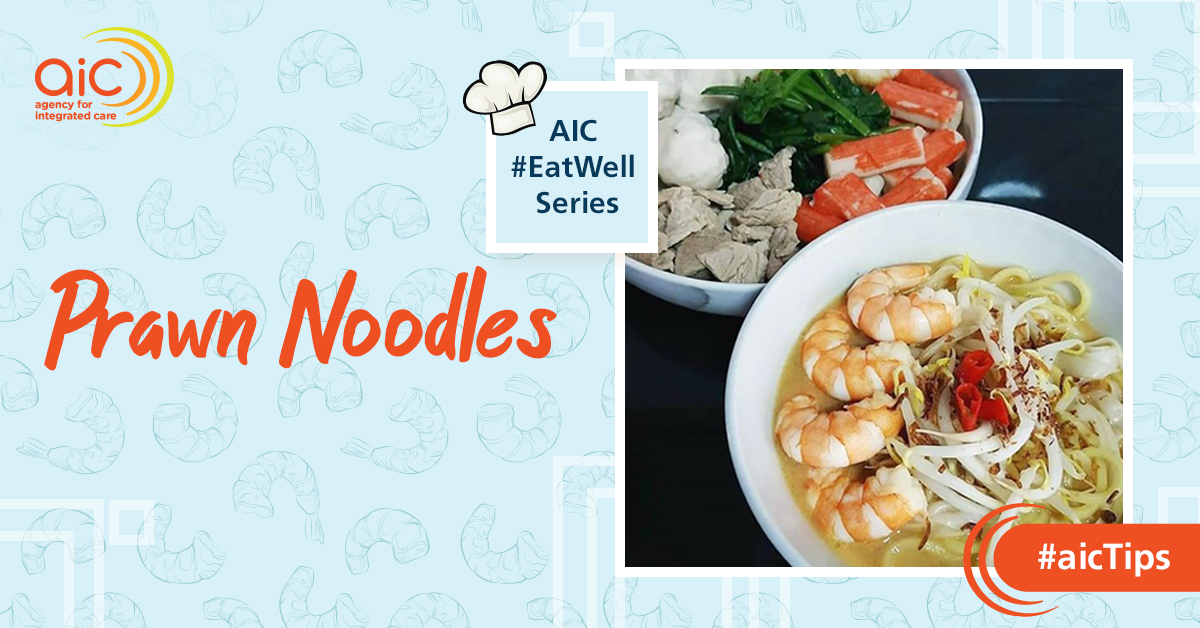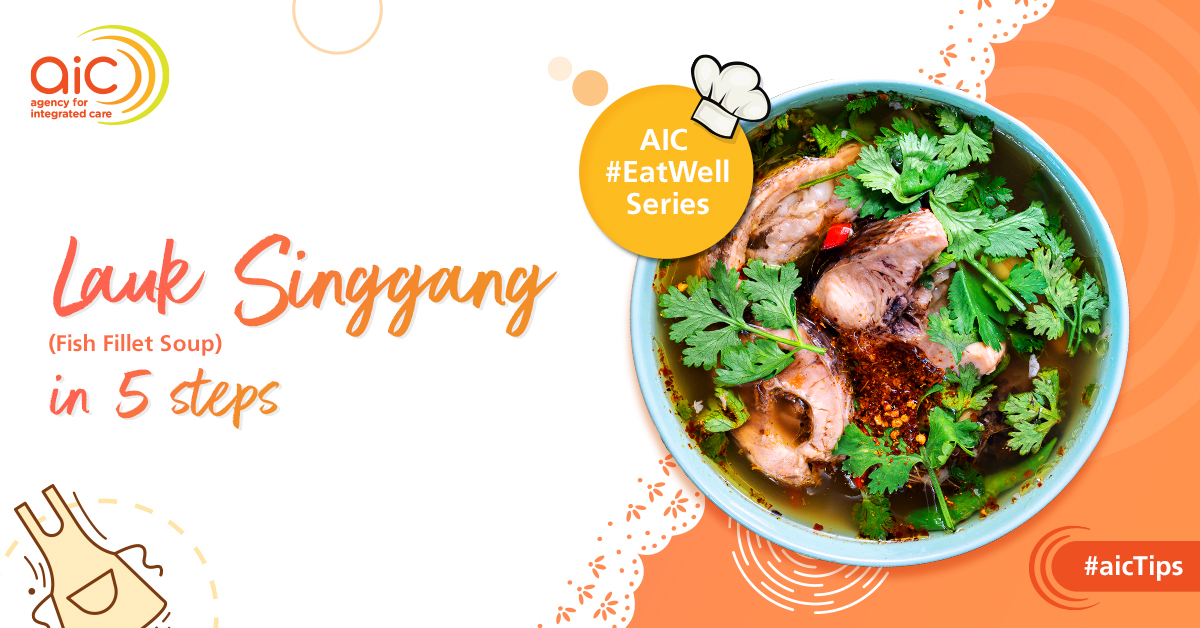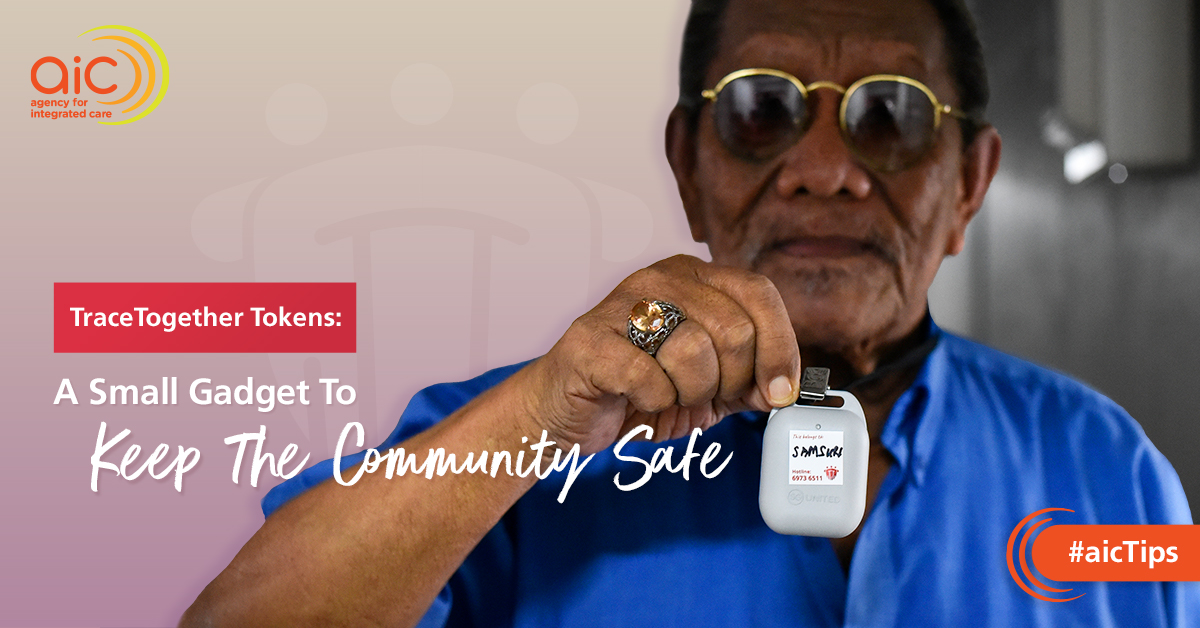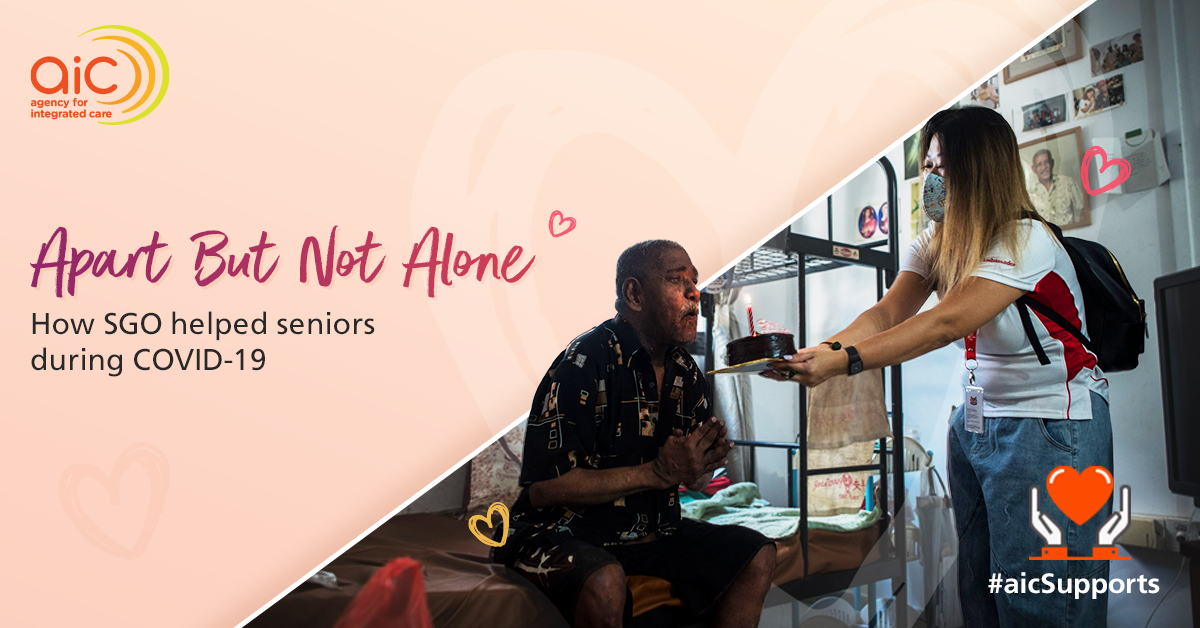Don’t lose sight of yourself and your own needs when you look after others.
This is a maxim Mdm Yong Chui Wah, 60, repeats often when sharing her secret to prioritising self-care as a caregiver.
Mdm Yong and her husband, both retired banking professionals, are full-time caregivers for their aunt, Mdm Chan Poh Kie, 86. Mdm Chan had been cared for by Mdm Yong’s mother-in-law since the older lady was in her 20s. The couple took over care for Mdm Chan after Mdm Yong’s mother-in-law passed away a few years ago.
Everyday Care Routine
Mdm Chan was diagnosed with schizophrenia in her 20s. The condition causes her to have illusions and talk to people or things that aren’t there. Hence, she needs help communicating with others and taking her meals and medications.
Despite this and her advanced age, Mdm Chan is quite mobile and can manage basic everyday activities like feeding herself and going to the bathroom.
A daily routine can start with Mdm Yong waking “Aunty” up to eat her medications and have breakfast. The medications must be taken with meals.
“She’s very easy to care for actually,” says Mdm Yong cheerfully. “I’m glad she isn’t fussy with her meals, so she eats whatever we prepare for her.”
After that, the couple would check on her blood pressure and sugar levels. In between meals, Aunty may spend her time watching the television –she particular enjoyed the 2022 Winter Olympics in Beijing and was a fan of local Channel 5 drama KIN.
Mdm Yong and her husband, who do not have children, have developed a comfortable routine with their aunt and learnt some ways to weave in rest time in between care.
The trio would go out more often before COVID-19, to parks or get some outdoor sun. They’ve reduced their outings but still take Aunty regularly to her medical appointments at a nearby clinic.
The couple split their roles. Mdm Yong’s husband takes on the cooking while she pitches in with other functions such as managing medications for the older lady. Husband and wife give each other a day off once a week for personal hobbies where Mdm Yong would catch up with her close friends, while her husband met with his kopi kakis.
They also have the support of Mdm Yong’s sister-in-law, who steps in to take care of their aunt. This lets Mdm Yong and her husband have a day to themselves.
Self-Care Smoothens Initial Challenges
Mdm Yong said that the only bump in their care journey came when Mdm Chan first moved in with them. As her speech was muffled due to her condition, the couple could not understand what she wanted to say.
"It took us a good one year to understand her", Mdm Yong recalls.
It took time and patience from both sides, but eventually the couple learnt to understand their easy-going aunt and what she needed, whether it was to tell them her bathroom was out of soap, or that her favourite Channel 5 drama, KIN, was airing on TV soon.
Last September, a loud thumping sound and cries sent Mdm Yong and her husband rushing to the bathroom to find Mdm Chan lying on the floor. They understood that she was experiencing headaches and nausea – signs of a stroke. The couple took Mdm Chan to a hospital, which caught her stroke early and provided treatment in time.
"We were fortunate that the stroke was detected early; otherwise, our aunt's health would be impeded to a large extent," says Mdm Yong.
Since then, Mdm Chan needs additional medication and hospital appointments to follow up on her condition.
Empathy, An Important Quality For Caregivers
While Mdm Yong says her caregiving journey has been fairly smooth so far, she knows this is not the same for her friends who care for senior loved ones with mobility concerns.
Her friends often share their heavy emotional burden from caregiving with her. To these stories, Mdm Yong's advice is that empathy should be shown when caring for others because there is a cycle of giving and receiving care.
"Put yourself in their shoes; one day, you might be like that," Mdm Yong reminds them.
Helping Caregivers Achieve Balance In Life
Mdm Yong credits her robust support system to helping her and her husband manage with caregiving roles even though they are seniors themselves.
“Caregivers must note that they do not need to do everything alone”, says Mdm Yong. She follows many online resources, such as Agency for Integrated Care (AIC)’s Facebook Page, for tips on caring for their aunt.
She also keeps an eye on the other caregiver support services, such as Caregivers Training Grant and approved courses that she might need in future.
Mdm Yong urges, “Caregivers who need support should reach out to agencies like AIC as they have services to assist you in your caregiving journey. AIC’s Facebook Page has been very helpful to me in my caregiving journey as I have learnt many tips from it.”
Last but not least, just as Mdm Yong encourages her aunt to move around independently, she sets strict standards for her own physical exercise.
She exercises two or three times a week and focuses mostly on building up strength in her legs. She counts on being hale and active well into her later years!
Caregivers Training Courses and GrantAIC offers various grants and connects you to services that can help you on your caregiving journey. The Caregivers Training Grant allows eligible caregivers to offset S$200 on the costs for attending Caregiver Training Courses. The courses can help caregivers better assist their loved ones with different care needs. Find out more about the available grants from AIC's website. |


